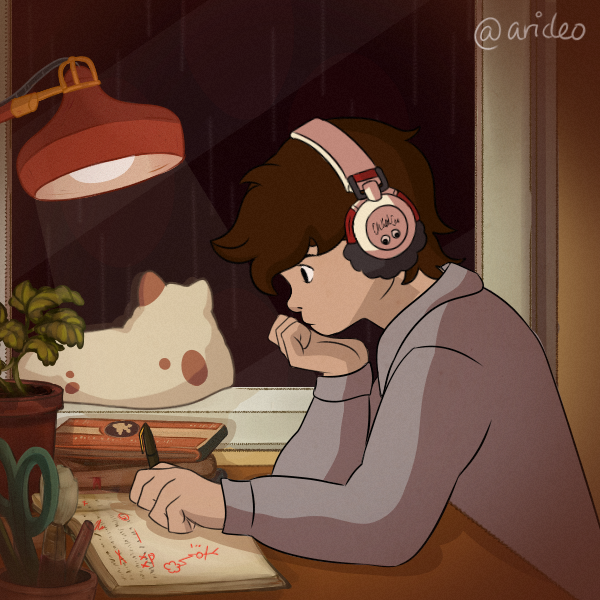Wrong question, in my humble opinion. A bubble is speculative at its core. It’s about traders, the stock market, investors, speculators and shit placing much more value on a thing than what it’s worth. The distance with reality grows massive, until everybody wakes up and “pop!” all that sweet sweet wealth (or savings, for the peasants) vanished into thin air. Think housing market or beanie babies.
The question here is if indie game dev can remain sustainable. It’s like restaurants: the more there are, the harder it gets. The risk is not nearly as sudden and explosive as a bubble though. If there are too many, some shops close, others shrink.
Furthermore, the tools and knowledge required for gamedev keep getting more readily available. It’s an art too, so there will always be someone somewhere with the overwhelming drive to do it, profitability be damned.
dot com was regarded as a bubble and seem to have the same amount of sustainability as indie games: good ones are good and bad ones are bad
Dot com was a bubble because you could call your company anything with a “dot com” on the end and get funding for it without a business strategy. Indie games never got that treatment.
Well I guess because you can’t really invest… even without funding you have tons of un strategy on indiegala
And without the investment angle, there’s no bubble.
A bubble isn’t “they’re really popular right now, and there’s a whole bunch of them popping up”. That’s a fad. A trend.
A bubble is always in reference to investments. It’s a pump-and-dump scheme at the level of the whole economy. The housing bubble isn’t because there’s a glut of houses on the market, it’s because people are trying to market houses as an investment opportunity for market squatters and landlords.
Yeah, I’m just saying that I don’t understand the sustainability argument
Domain name were a speculative asset. This supports what the person you’re replying to is arguing.
And yet some of my favorite indie games are games practically nobody’s ever heard of. Most recent was Metal Unit, a game that I don’t know how I have in my Steam library and somehow evades the internet’s favorite rule despite the main character being an anime girl in a bodysuit. At time of writing there are 17 players in-game.
So while good games are good and bad games are bad, the good ones may not necessarily be sustainable.
The article actually addresses this, but I feel “indie games bubble” is simply too broad a term. Is there a medium-high budget indie game bubble? Maybe. But can indie games in general even have a bubble? Fuckloads of indie games are passion projects, or made from crowdfunding money, or otherwise not based around the idea that they have to be the “product” of a sustainable business, making the whole idea of a “bubble” pointless. If the bubble pops, will itch indies stop making games? Will passionate solo devs languishing at double digit Steam review numbers stop releasing games? I don’t think they will.
The indie game market will crash and countless of investors will sit on their virtual mountain of now worthless indie games
I better sell my 1,000 copies of Celeste I’ve been sitting on then. I was waiting for retirement, but might as well take the tax hit.
No. There will always be a demand for new videogames and indie studios make the best ones.
If anything the AAA bubble is bursting right now.
The AAA bubble burst a while ago. Complete AAA games rarely release anymore because studios keep trying to push the boundary on scope and size instead of focusing on quality.
The limited size of indie games means they’ll always have the capability to ship complete. They don’t always because the teams are much smaller and less experienced, but I’ve always found more enjoyment out of a passionate indie game than a corporatized AAA.
What’s with this focus on the word “complete”? Usually I just see it from people salty about the idea that a game ever gets DLC, but we’re rarely seeing the kinds of things we saw in the late 00s and early 2010s where games would have a “missing chapter” or whatever, so if something about modern games is being described by how “complete” they are, it seems like a bad descriptor to me.
More that now that patches are easy to implement across any platform you don’t have to ship something that works well day 1 anymore, nor does it need everything that should be out at release. Often that means people release a game well before it should have released and charge full price for a game that is literally incomplete. Great example would be No Man’s Sky which was “complete” (based on their advertisements) maybe 3 years ago(whenever they implemented actual multiplayer finally)? And came out 7 years ago.
There’s a kind of qualitative difference between a game that was built to be played and later has DLC released for it and a game that is essentially built as a DLC platform. The latter has become extremely common in AAA games and it winds up feeling incomplete because the insertion points for planned DLC are usually quite noticable.
I think this definition gets diluted by those who would call something like a Paradox game incomplete just because there are only so many features you can build for a systems-driven game like that in a few years of development time, and they naturally expand on it over time. But out of dozens of expansions, there are people who say all of them are absolutely necessary to get the “complete” experience when realistically they’d never engage with even half of the expansion features anyway.
What evidence do you have that AAA’s are a bursting bubble?
I agree with that person as long as we’re continuing to use the qualifier “if anything”. AAA studios have thoroughly undiversified themselves and are looking for buyers from the few other companies wealthy enough to afford them, hence Activision’s and Zenimax’s sales to Microsoft. EA, Square Enix, and Ubisoft were all looking for buyers, and it wouldn’t surprise me if Take Two was as well. EA’s got sports and Battlefield and little else. Square Enix has Final Fantasy and Dragon Quest and little else. Ubisoft has Assassin’s Creed and Far Cry and little else. On and on. They spent the last decade not making small bets on new IPs to replace these IPs once their time in the spotlight wanes. It’s the very thing that Phil Spencer was talking about in that leaked e-mail about what he sees as a strength of Game Pass and a weakness of how AAAs chose to respond to the changing market.
You’re forgetting The Sims, a veritable cash cow for EA, where every tiny add-on costs $15+.
But otherwise, I agree.
They’re pivoting to free to play, so that series may have waned as well. I’m sure it’s still profitable, but you don’t switch to free to play, especially for what is ostensibly a single player game that doesn’t rely on player counts, if everything is going well.
Oof. If that’s true, I feel bad for all the folks who have invested so much time into the series.
I don’t think you need to. The series is turning to something else entirely, with a completely different focus. I already think any previous episode is more fun than 4.
The folks who loved the old games probably won’t think 5 is a free replacement for these. They’ll just think, it’s okay, I’m going to spend a dozen hours trying to make the old one kinda run.
Free to play with microtransactions is just the way to go for games that can be monetized in that manner. The lower barrier to entry means far more downloads and the piecemeal monetization means that players will frequently end up paying more than $60 alongside the larger player base.
Compared to the business they used to with the Sims, free to play makes it much, much harder to break even. You’re hoping to monetize more off of a smaller percentage of your players. 95% of people will never pay in a free to play game, and the Sims games would sell over 10 million units each, handily, plus expansions. But I know that plenty of people would pirate the expansions, so EA probably sees that as a threat that they need to lock behind an internet connection in a server-based game, and they’ll likely destroy the series’ profitability in the process.
Square has final fantasy, dragon quest, kingdom hearts, octopath traveler, forspoken, and a myriad of smaller games you aren’t familiar with including lots of mobile game sales. They’ve got like 15 2023 releases on their Wikipedia. They’re doing fine and don’t belong on this list lol
They’ve got 10 games for 2023, and about half of them are either Dragon Quest or Final Fantasy (Kingdom Hearts, btw, is basically still Final Fantasy as it relates to IP). If you’re making small bets to find the next big thing to replace your big franchises, you need to make a lot more of those small bets, like publishers used to do 20 years ago and like mid-sized publishers are doing now. Rumor has it they divested themselves of former Eidos studios to make themselves a more attractive purchase for Sony, which fell through but resulted in exclusivity deals like Zenimax did.
Didn’t final fantasy perform poorly, and forspoken was so bad, they closed down the entire branch working on it?
FF16 sold over 3mill week 1 so I imagine it’s doing fine. We’ll see next sales update.
Forspoken hasn’t done very well but the point is they’re publishing a ton still.
Someone didn‘t understand the meaning of speculative bubble
Betteridge’s Law of Headlines still applies. Asking that question shows a misunderstanding of what a bubble is and also assumes that’s what’s happening right now is the only thing that will continue to happen into the future, rather than the ebbs and flows that come in any economic conditions. Current economic conditions are affecting a variety of industries right now, not just indie games, which the article acknowledges with regards to layoffs at big AAA studios. The market will only bear X amount of some thing, and spending is slowing, so X has to lower with it. That affects all video games right now, from Fortnite to Shadow Gambit.
The marketplace has grown a lot, so it might be harder to stand out. But indie studios tend to operate in a far more sustainable way.
As long as there is a demand for games that are complete, affordable and GOOD… the indie game market will stay healthy.
Furthermore, there’s no shortage of people who sometimes decide to support indie devs over giant AAA studios. Maybe I’m a bit snobbish, but I wrinkle my nose a bit whenever the next “super mega ultra open world souls-like Metroidvania rogue-lite dungeon crawler battle royale” from Faceless MicroTx Corp comes out, even if it winds up being decent.
As long as people can discover these indie games, people will buy them.
you could call it an indie game fad, echoing others, I dunno about “bubble”.
I could see there being fatigue with particular genres of indie games (Metroidvanias, Rougelites, First-Person Horror without combat, speedrunner-oriented 2D platformers) but not with the very concept.
I sure hope there isn’t fatigue with metroidvanias, we only just started getting more than a few…
So the article is arguing what is indie and what is not…
This has nothing to do with “bubble” in the economic sense. I was worried when I read the title but looks like things are alright.
Will there ever be not a bubble? What else but games is there to create when everything is automated?
ChatGPT, program a Metroidvania 2d retro 16 bit graphics video game featuring a naked Emilia Clarke.
Impeccable taste, the new requirement for programmers.
Seems like from reading this the answer is if there is it’s popped mostly and if there isn’t then things will continue on as is maybe getting slightly worse.
There are probably multiple indie game bubbles, like roguelike card game bubbles or Metroidvania 2d retro 16 bit graphics game bubbles.













